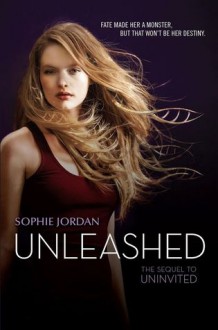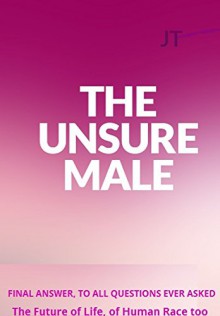

„Uninvited“ von Sophie Jordan brauchte ziemlich lange, um den deutschen Markt zu erreichen. Ich habe das Buch im Juli 2015 gelesen; die deutsche Version wurde erst im Februar 2016 unter dem Titel „Infernale“ bei Loewe veröffentlicht. Auf seiner Website bietet der Verlag einen Test an, durch den Leser_innen herausfinden können, welcher Figur der Geschichte sie ähnlich sind. Ich habe den Test aus Jux und Tollerei durchgeführt: angeblich bin ich wie die Protagonistin Davy. Na danke. In meiner Rezension zu „Uninvited“ beschrieb ich Davy als hilflose Mary Sue. Ich konnte nur hoffen, dass sie in der Fortsetzung „Unleashed“ etwas mehr Feuer erhält.
An der Grenze zu Mexiko warten Davy, Sean, Gil und Sabine auf ihre Gelegenheit. Als Träger_innen des HTS, des Homicidal Tendency Syndrome, sind sie in den USA Freiwild, erst recht, seit sie aus Mount Haven flohen. Nun müssen sie sich auf die Hilfe des Widerstands verlassen, um als Flüchtlinge ein neues Leben zu beginnen. Doch verdient Davy überhaupt eine zweite Chance? Das Gesicht des Mannes, den sie auf Befehl im Camp erschoss, verfolgt sie. Ihre Schuld frisst sie auf und entfernt sie weiter und weiter von ihren Freunden. Trotzdem geht sie mit ihnen, als der Zeitpunkt ihrer Grenzüberquerung gekommen ist. Der Plan scheitert. Davy wird von den anderen getrennt und angeschossen, entkommt nur knapp und ist schwer verletzt auf sich allein gestellt. Zu ihrem Glück findet sie der charismatische Caden, Leiter eines unterirdischen Stützpunktes des Widerstands. Er bringt sie in Sicherheit und stellt ihre Gefühle, ihr Selbstverständnis und ihre Loyalität auf eine harte Probe. Hat sie als Trägerin ein Recht auf eine glückliche Zukunft oder sollte sie als die Mörderin behandelt werden, die sie ist?
Ich hatte von Anfang an niedrige Erwartungen an „Unleashed“. Ich ging nicht davon aus, dass sich die Kritikpunkte des ersten Bandes in der Fortsetzung auflösen würden. Sophie Jordan brachte trotz dessen das Kunststück fertig, meine bescheidene Erwartungshaltung noch zu untertreffen. Dieses Buch ist weit schlechter, als ich angenommen hatte. Es ist banal und beschränkt. Meiner Meinung nach hätte sie sich den zweiten Band definitiv sparen können, weil er den Leser_innen überhaupt kein neues Wissen verschafft und sich die Geschichte permanent im Kreis dreht. Es gibt darin keine Fortschritte, sondern nur ermüdende, enervierende Wiederholungen. Der theoretische Kern der Handlung, das HTS, wird vollständig von den Liebeseskapaden der Protagonistin Davy verdrängt und dient maximal als Rahmen. Es geht kaum noch um die Diskriminierung von Träger_innen in den USA, sondern nur um Davys persönliches Schicksal. Ich durfte eine zimperliche, naive Heulsuse begleiten, die ununterbrochen im Selbstmitleid badet. In Ich-Perspektive. Großartig. Hätte ich mich noch ein bisschen mehr über sie aufgeregt, hätte ich vermutlich ins Buch gegriffen, um ihr alle Zähne auszuschlagen. Ich hasse ihre psychische, mentale Schwäche und Hilflosigkeit. Ich verabscheue ihren grenzenlosen Egoismus, der sie ihre Freunde vergessen, Caden ausnutzen und sich selbst als Mittelpunkt des Universums verstehen lässt. Sie hat ihre Vorurteile über HTS-Träger_innen noch immer nicht überwunden und Sophie Jordan bemüht sich weiterhin nach Kräften, ihr verzerrtes Weltbild zu bestätigen. In einer Szene wird Davy beinahe von einem Träger vergewaltigt – ein überflüssiger und abstoßender Moment, der lediglich verdeutlichen soll, wie furchtbar die Welt ist, in der Davy lebt. Selbst im Lager des Widerstands, über dessen Organisation Jordan so gut wie nichts offenbart, nimmt Davy eine Sonderposition ein, weil sie dort als Bedrohung aufgefasst wird. Bullshit. Sie bleibt in „Unleashed“ eine hilflose Mary Sue, ein Mädchen, das sich, obwohl sie sich für ach so gefährlich hält, dem ersten hübschen Kerl an den Hals wirft, der ihr begegnet, weil sie in Wahrheit nicht in der Lage ist, irgendetwas allein zu regeln. Sie hat keinerlei Gewissensbisse, mit Caden anzubandeln, obwohl sie meinem Verständnis nach mit Sean zusammen ist. Sie haben zwar nie Schluss gemacht, aber für sie ist die Beziehung beendet. Seans Gefühle spielen keine Rolle. Davy ist weder stark, noch mutig oder ein besonders wertvoller Mensch, sie ist eine egozentrische Dramaqueen, die sich ständig selbst belügt und nicht ein einziges Mal darüber nachdenkt, wie ihr Verhalten ihre Mitmenschen beeinflusst. Ich fand es ätzend, wie hemmungslos Sophie Jordan unglaubwürdige Klischees bedient, die die emotionalen Knöpfe der Leser_innen drücken sollen und darüber die grundlegende Handlung ihrer Geschichte sträflich vernachlässigt. Jegliche Chancen, inhaltliche Wendungen für ein Mindestmaß an Bedeutsamkeit zu verwenden, blieben ungenutzt. Das Ende von „Unleashed“ war eine Zumutung, irrationales, unrealistisches Gefasel, das ich ihr nicht einmal unter Einfluss schwerer Sedativa abgekauft hätte. Es war eine Beleidigung meiner Intelligenz.
Ich bin so wütend auf Sophie Jordan, dass mir beinahe Rauch aus den Ohren quillt. Ich habe ja keine großen Sprünge von „Unleashed“ erwartet, aber das… Das ist einfach unverfroren. Dreist. Billig. Kitsch und Drama werden es schon richten, wen interessieren da inhaltliche Substanz und Plausibilität? Mich interessiert es, verflixt und zugenäht noch mal! Wie konnte die Autorin wagen, solchen Schund zu veröffentlichen? Was fällt ihr ein? Ich habe das Buch überhaupt nur deshalb gelesen, weil ich hoffte, dass sie sich intensiver mit dem HTS auseinandersetzen würde! Ich wollte keine Neuauflage von „Prinzessin Davy sucht heißen Bodyguard mit Zusatzleistungen“! Mir hat diese Fortsetzung nicht das Geringste gebracht. Die Dystopie ist nicht mehr als ein leeres Versprechen, die Figuren sind in Klischees gefangene, unechte, starre Schaufensterpuppen und die Geschichte… Ja, welche Geschichte eigentlich? Die Lektüre war Zeitverschwendung. Schämen Sie sich, Sophie Jordan, schämen Sie sich.

 Log in with Facebook
Log in with Facebook 










